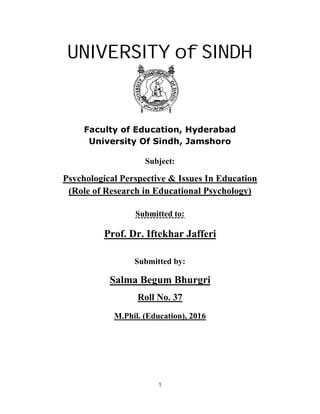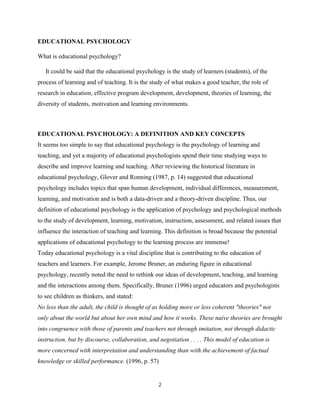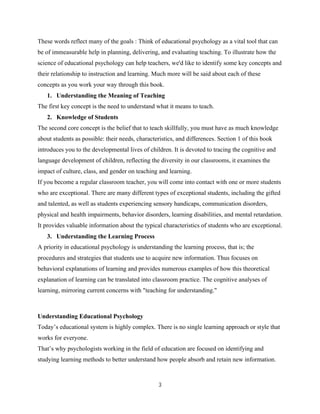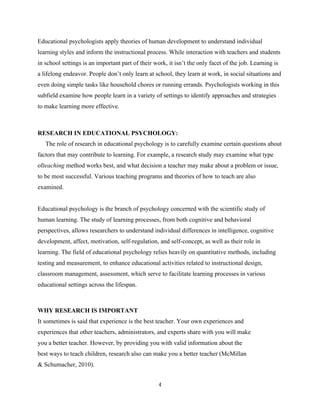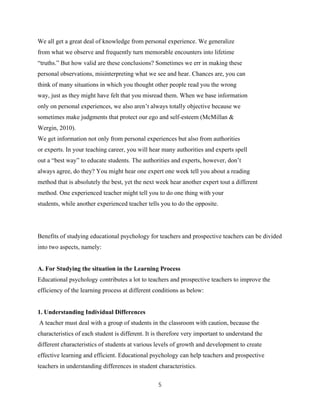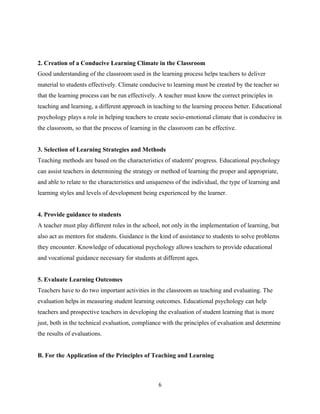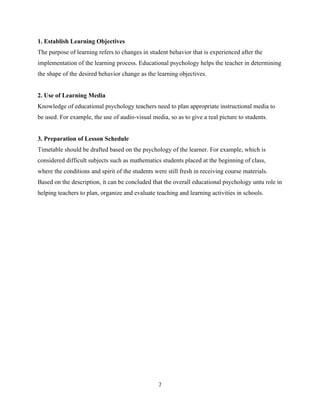1. Educational psychology is the study of learners, the learning process, and teaching methods. It examines topics like human development, individual differences, learning, motivation, and instruction.
2. Research in educational psychology carefully examines factors that may contribute to learning, such as different teaching methods and theories. It aims to identify the most effective approaches.
3. Educational psychology helps teachers understand individual learner differences, create positive learning environments, select appropriate teaching strategies, provide student guidance, and evaluate learning outcomes. It also assists with establishing learning objectives, using educational tools, and lesson planning.
